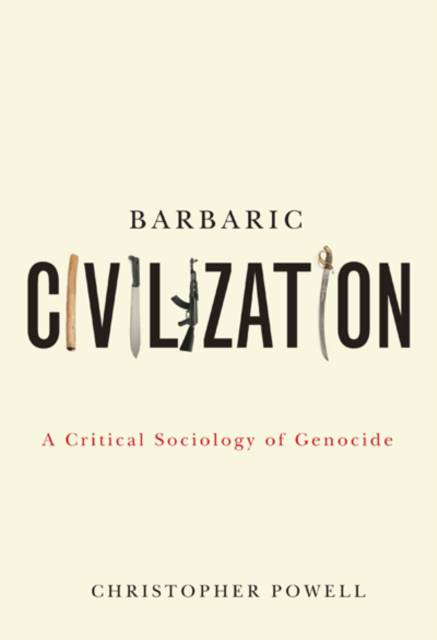
- Afhalen na 1 uur in een winkel met voorraad
- Gratis thuislevering in België vanaf € 30
- Ruim aanbod met 7 miljoen producten
- Afhalen na 1 uur in een winkel met voorraad
- Gratis thuislevering in België vanaf € 30
- Ruim aanbod met 7 miljoen producten
Zoeken
€ 51,95
+ 103 punten
Uitvoering
Omschrijving
From its beginnings in the early twelfth century, the Western civilizing process has involved two interconnected transformations: the monopolization of military force by sovereign states and the cultivation in individuals of habits and dispositions of the kind that we call "civilized." The combined forward movement of these processes channels violent struggles for social dominance into symbolic performances. But even as the civilizing process frees many subjects from the threat of direct physical force, violence accumulates behind the scenes and at the margins of the social order, kept there by a deeply habituated performance of dominance and subordination called deferentiation. When deferentiation fails, difference becomes dangerous and genocide becomes possible. Connecting historical developments with everyday life occurrences, and discussing examples ranging from thirteenth-century Languedoc to 1994 Rwanda, Powell offers an original framework for analyzing, comparing, and discussing genocides as variable outcomes of a common underlying social system, raising unsettling questions about the contradictions of Western civilization and the possibility of a world without genocide.
Specificaties
Betrokkenen
- Auteur(s):
- Uitgeverij:
Inhoud
- Aantal bladzijden:
- 356
- Taal:
- Engels
Eigenschappen
- Productcode (EAN):
- 9780773538566
- Verschijningsdatum:
- 15/06/2011
- Uitvoering:
- Paperback
- Formaat:
- Trade paperback (VS)
- Afmetingen:
- 155 mm x 228 mm
- Gewicht:
- 544 g

Alleen bij Standaard Boekhandel
+ 103 punten op je klantenkaart van Standaard Boekhandel
Beoordelingen
We publiceren alleen reviews die voldoen aan de voorwaarden voor reviews. Bekijk onze voorwaarden voor reviews.











